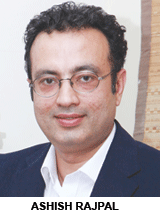 – Ashish Rajpal, founder and managing director of iDiscoveri/XSEED
– Ashish Rajpal, founder and managing director of iDiscoveri/XSEED
I am no fan of Gujarat chief minister and BJP prime minister aspirant Narendra Modi. But I have to grudgingly admit he knows how to make a point. During one of his increasingly visible addresses, he said good governance needs action, not Acts. He then went on to persuasively argue that the Right of Children to Free and Compulsory Education Act, 2009 (aka RTE Act) is a prime example of legislation that is wasteful and disregards the issue of implementation. The Constitution already has all the required provisions, supplemented with initiatives such as the Sarva Shiksha Abhiyan (education for all) programme, among others to universalise elementary education.
Nonetheless, I disagree with him. Both the RTE, in thought, and SSA, in action, are way off the mark and ignore what actually works towards improving school education.
But first the facts. The truth is that the so-called India story and its excellent education system has hinged on the success of elites who have done well. This low hanging fruit having been plucked, its becoming abundantly clear that 90 percent of our graduates are unemployable. Double digit growth is more applicable to rape cases per day in the national capital than India’s GDP growth, and despite populist MGNREGA (Mahatma Gandhi National Rural Employment Guarantee Act)-economics, the gap bet-ween the rich and poor people and states has widened.
There is considerable empirical evidence which links sustained economic growth of a nation to investment in the schooling system (college is too late!). Certainly India’s school system needs reform. If you are unsure about the condition of schooling in India, it wont take you long to make up your mind. While access to schools and enrollment of children (reportedly an impressive 97 percent) has steadily risen since independence, by any other indicator; including the much cited ASER (Annual Status of Education Report) and PISA (Programme for International Student Assessment) reports; students learning outcomes are deplorable. The depressing data is topped by grizzly tales of how the majority of class V children cant read class II level texts, how India (represented by our best states) ranked 73 out of 74 countries tested in PISA, and of how in some subjects, our children score half the international average. There is a flight to private schools at all levels of society, and across states. While the government will never admit it, by some estimates over half of India’s children are in private schools.
The eyes of successful middle class citizens glaze over when they hear these statistics. There is firm belief that rockbottom learning outcomes is an affliction of the poor in government schools. However, if you wake up to smell the coffee, you’ll discover that even in urban private schools, children are infected by the culture of rote learning, superficial knowledge, and low confidence. Yet the anguish of the middle class is limited to anxiety over having to pull every string to get their toddler admitted into a good school. Once that’s done, they can sit-back-relax-and-enjoy the ride for a decade or more, till the next round of admissions for college comes up. Meanwhile the larger issue of poor quality education continues unchecked.
If one looks beyond ideological debates, there is some evidence of what has worked in improving quality primary education at scale. As MIT academics Abhijit Banerjee and Ester Duflo encouragingly declare in their celebrated book Poor Economics (2011), making sure every child learns the basics in school is not only possible, but surprisingly easy. So its a pity, actually a crime to waste time on poorly conceived legislation such as the RTE Act.
Obsession with inputs is what unites various government efforts in spirit. The RTE talks of ratios, facilities and infrastructure, and resources. The SSA programme too mandates profligate expenditure on inputs, with 90 percent of spending directed at holy cows: school infra-structure, teachers salaries and training, and mid-day meals. Kartik Murlidharan of the University of California at San Diego, has highlighted there’s little or no correlation between students learning outcomes and infrastructure, number of teachers, teacher training, teacher salaries, and other populist schemes which dole out uniforms, books and meals.
Therefore unless there is a paradigm shift from label capital (marks, degrees, awards etc) to capability capital (ability to read, write, think, program, solve, learn, communicate etc) for a substantially large proportion of our huge population, all education reform initiatives will be short- lived. The clamour for skills in English (read employability) or computers (read better pay in a software company) in India’s teeming moffusil towns, mirrors this need. But, ironically, this urge is driven not by school managements but by industry demand; not by the well educated middle class but by those further down the socio-economic pecking order who desperately want to become middle class. And for the most part, these needs are being met outside the schooling system through learning centres, extra classes, and private tutors.
So whats the way out? The answer is to treat schools less like special-case institutions and more like other successful organisations, ones that respect their customers and consistently deliver a compelling promise.
Also read: BJP/NDA Government’s Education Report Card (2014-18)























